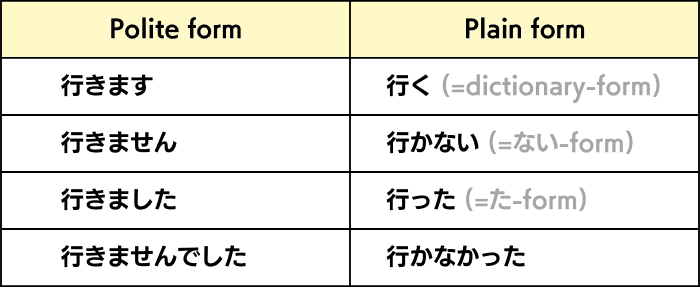Verb
Plain form
- A conjugation of Japanese verbs, which is used to describe an action or event in a casual style.
- Conjugated for tense (present or past) and affirmative/negative, and its affirmative present tense, negative present tense, and affirmative past tense are also known as "dictionary form", "ない-form", and "た-form", respectively.
- The plain form of verbs in the negative past tense is created by replacing ない of the ない-form with なかった.
- The plain form is often used among friends and family members, while the polite form (ます-form) is often used in business settings or other formal situations.

Example Sentences
-
いつも家で晩ご飯を食べる。He always eats dinner at home.
-
山田さんは、絶対にアルバイトを休まない。Yamada never misses his part-time job.
-
会社で、田中さんと会議をした。At work, I had a meeting with Tanaka-san.
-
私は、ジュースを飲まなかった。I didn't drank juice.
-
あっ、来週、うちに、お土産の荷物が届くよ。Oh, next week, a souvenir package will arrive at our house.
Tags
JLPT N5; みんなの日本語初級(20)